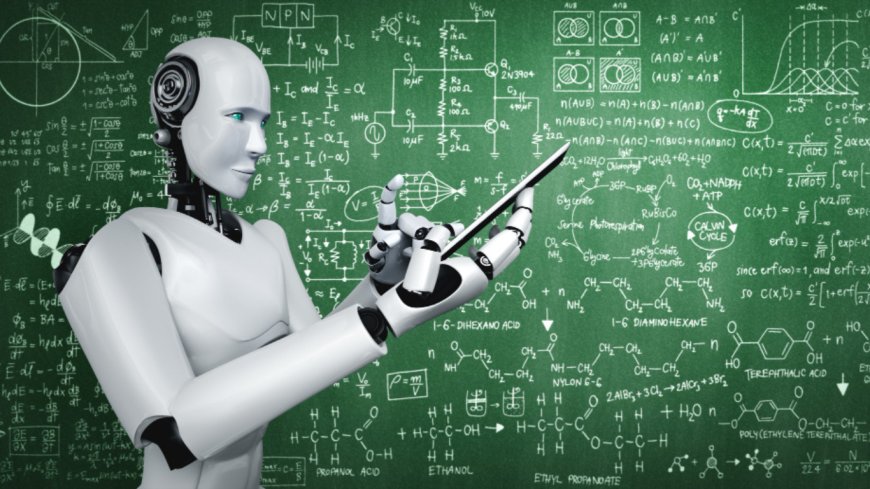AI in the Classroom: Will AI Replace Writers or Help Students Learn Better?

AI in the Classroom: Will AI Replace Writers or Help Students Learn Better? https://www.freepik.com/premium-photo/robot-humanoid-use-mobile-phone-tablet-engineering-science-studying_12180279.htm#fromView=image_search&page=1&position=7&uuid=03adee04-f9ea-40d9-b27f-3987bc9aafde
Representational image by Frolopiaton Palm from Freepik
All the industries in the world “feel” the power of artificial intelligence. When it comes to the niche of education, it kind of stands at a pivotal crossroads. More and more tutors make artificial intelligence part of the classroom routine. They use things like grammar checkers, plagiarism detectors, while students benefit from essay generators. Taking into account the popularity of AI, it’s no wonder that we all seem to wonder, “Will AI replace human writers or improve the learning process?”
Well…the answer is not black and white.
On the one hand, people fear that the cyber mind will replace the human mind and creativity. And this kind of fear that an AI essay writer with citations will become a substitute for homo sapiens is understandable. But the reality is quite nuanced. Below, we will see what role AI plays in education and take a look at its potential impact on student learning and the development of writing.
Here Comes AI…
Various writing tools that you can see the very moment you Google “AI writing tools” can do literally anything. They generate, rewrite, or improve your prose in 1,2,3. They help students plan and write essays, paraphrase paragraphs, and check grammar or style. In many ways, machines serve as digital writing helpers. As a result, the process of writing is easier for students of all levels, from high school to postgraduate.
Are you an ESL student? There’s no doubt that you experience various learning difficulties. AI can be that very magic wand that will help you get the ball rolling. It helps you express ideas more clearly and, as a result, feel more confident when you have to submit writing tasks in a class.
Artificial Intelligence Improves Learning (Never Replaces It!)
While a lot of people are afraid that students will use artificial intelligence instead of doing the thinking job themselves, using it wisely can actually boost learning. How? Take a look:
You get instant feedback in real time. AI is the source of instant comments on how good or bad your essay is. No human teacher or professor can do that as fast as the cyber mind. Thus, students learn from their mistakes in the moment rather than waiting days for a tutor’s feedback.
You become more confident about your prose. Students who find it hard to structure texts or juggle grammar rules can see better results and feel encouraged to write more often.
You are engaged in higher-level thinking. With the whole scope of basic mechanics supported by artificial intelligence, teachers and college professors can push undergrads to focus on essential ingredients of writing – critical thinking, analysis, and creativity.
As you can see, with the help of artificial intelligence, students (well, and professional writers too) can hone their writing while actually enjoying the ride.
The Importance of Using AI Ethically
The biggest risk isn’t cyber mind replacing homo sapiens writers. It is high school and college students who misuse it when working on their assignments. If boys and girls rely too heavily on artificial intelligence to complete tasks, they may miss the wonderful and unique learning opportunities that come from handling all the writing challenges.
Knowing all that, professors have to teach students how to use artificial intelligence wisely and responsibly:
To come up with juicy essay topics (not copy ideas).
To revise and polish texts (not ask cyber mind to do the thinking job).
To learn grammar and style (not avoid them).
In other words, they have to consider AI a writing tool, not an alternative to human writing. With the help of teachers and college professors, students learn to approach machines with the right questions, check and critically evaluate content produced by artificial intelligence, and better understand what the process of writing actually is.
So, Will AI Replace Writers?
Writing is more than just juggling letters and putting words together. It’s about expressing your own unique voice by means of original content that radiates emotions and gives human insight. You can use artificial intelligence only to mimic a certain style or structure. However, machines can never replicate your experience or provide your target audience with authentic storytelling.
Of course, you can ask artificial intelligence to help you with some routine writing tasks (like creating reports or emails), but it will never replace the talent and the job that only creative writers, journalists, poets, or even students (who engage deeply with their essays and book reviews) can do.
What’s the Future of Writing in the World of AI?
First of all, let’s stop seeing a job-stealing monster in artificial intelligence. Instead of fearing it, undergrads and tutors have to embrace it as a trusted and available 24/7 partner in crime. It is your helper in your learning. And if you make sure to use it wisely, it will definitely:
Make every other essay or research paper less intimidating.
Provide you with personalized learning that tutors can’t provide.
Encourage more experiments with language, texts, styles, and so on.
To cut a long story short, the goal is not to ban AI in the academic world. Instead, it is crucial to teach young people to use this unique helper wisely. Thus, they will learn to write better, not less. Ta-dah!
Final Words
Well, using artificial intelligence in the classroom is not the end of human writing. It is the start of a new era in learning. If you use it thoughtfully (just as a partner you can trust), it will help you learn to better communicate and be a more confident writer. It is not going to replace something that God gave us, i.e., our creativity. Instead, it helps us unlock it when we feel kind of stuck. So, will it replace us in the future? The answer, of course, depends on how high school teachers and professors teach students to use it and how we value the human voice in a world of extra-smart tech.
Source:https://worldbusinessoutlook.com

 Francis
Francis 





